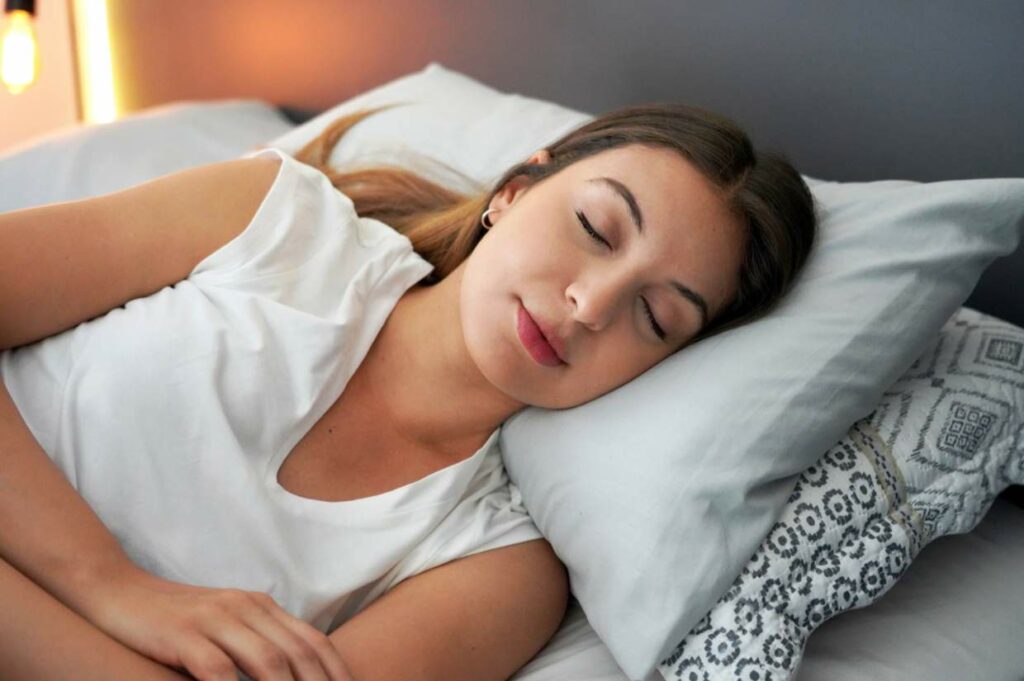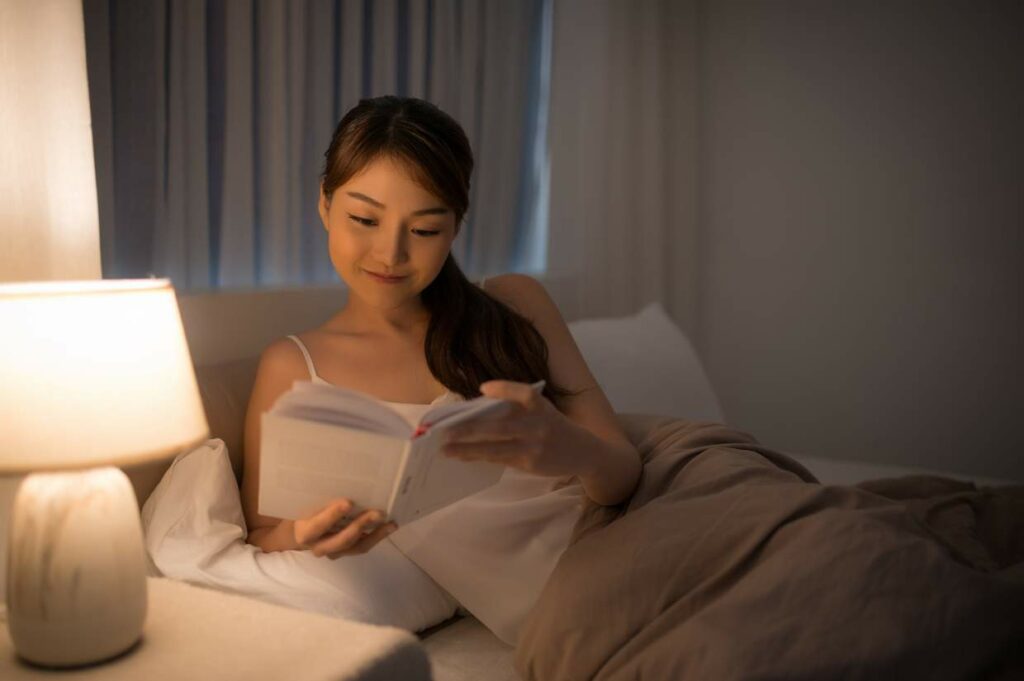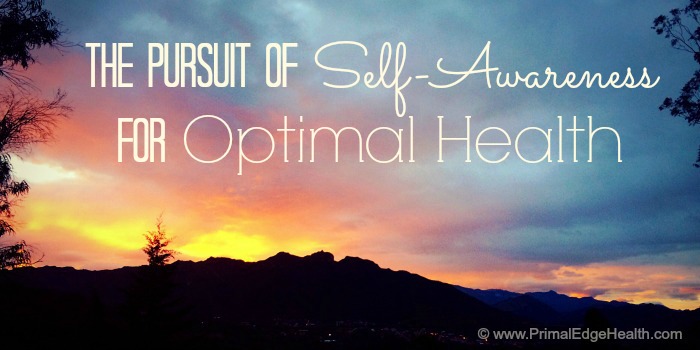Circadian Rhythm Secrets to Unlock Your Best Sleep Ever
Primal Edge Health participates in the Amazon Services LLC Associates Program and other affiliate programs and therefore, may collect a share of sales or other compensation from the links on this page. This comes at no additional cost to you, and all the prices and availability are accurate at the time of publishing.
Everyone knows that good sleep is essential to a healthy lifestyle. Unfortunately, some of us might have such an unoptimized circadian rhythm that we cannot get a good night’s sleep no matter what we do.

Do you struggle to fall and stay asleep most nights? Do you wake up groggy and not refreshed at all? If this is a constant experience for you, don’t worry — with just a few lifestyle adjustments, you can unlock the better quality sleep you’ve been dreaming of.
Table of Contents (click to view)
What is Circadian Rhythm?
When it comes to the subject of sleep, you’ve probably heard the term circadian rhythm thrown around. But what exactly is it? And how does it affect our sleep?
Getting enough sleep is one of the best wellness tips everyone should abide by. However, when your circadian rhythm is off, you might have trouble sleeping at night, waking up on time and staying alert throughout the day.
According to the National Institute of General Medical Sciences, the circadian rhythm is the 24-hour cycle that plays a huge role in your sleep-wake cycle. In other words, it’s our internal body clock that regulates the cycle of sleepiness and alertness throughout the day.
What Happens When Your Circadian Rhythm Is Disrupted?
If you don’t sleep when you’re tired or nap too much during the day, you might misalign your body’s natural 24-hour cycle. This can happen for many reasons, from traveling to job shift changes.
Whatever the reason may be, experts at the Sleep Foundation say that a disrupted circadian rhythm can lead to negative effects on your physical and mental health. These can include:
- Sleep issues: You may have trouble falling asleep, staying asleep, waking up on time or a combination of all of these problems.
- Reduced function: When you don’t get enough sleep, you’ll likely experience excessive daytime sleepiness and may have trouble with high-precision tasks.
- Mental health problems: Lack of sleep can make way for increased stress, irritability, depression and anxiety.
- Health conditions: A disrupted sleep cycle can increase your risk of heart disease, obesity, diabetes and cancer.
- Fatigue: Of course, the major effect of not getting enough sleep or sleeping too much can lead to excessive grogginess and tiredness throughout the day.
How Can You Improve Your Circadian Rhythm?
If you struggle to get a good night’s sleep every night, you might have a misaligned circadian rhythm. According to the National Heart, Lung, and Blood Institute (NHLBI), doctors may recommend the following strategies to help reset your sleep-wake cycle:
Set a Regular Bedtime
First, it’s important to have a regular bedtime to normalize your sleep-wake cycle. Try to get in bed at least an hour before your scheduled bedtime and make your sleeping area as relaxing as possible. Some tips include:
- Keep your bedroom cool and dark.
- Minimize noise or use white noise to help you fall asleep.
- Close your eyes and relax your mind until you fall asleep; avoid phones, books or any form of entertainment if you’re trying to go to bed.
- Consider using essential oil diffusers if aromatherapy relaxes you.
“Keeping a healthy circadian rhythm in Alaska can be difficult. Our winter days are short, and our summer days are long. Most of the time, it feels like we’re either asleep or awake at the wrong time of day. To help myself stay sane and healthy, I try to institute a healthy routine all year round, waking and sleeping at roughly the same time every day of the week. We also employ happy lights in the middle of winter when our natural daylight drops to 4 to 6 hours daily.”
— Laura Sampson, Little Frugal Homestead

Eat Meals on Time
A study by the National Sleep Foundation states that eating on the right schedule encourages better sleep. Eating once your body tells you to eat helps align your internal clock with the actual time of day. For example, regularly eating breakfast tells your body clock it’s time to be awake.
Inversely, eating your last meal 2 to 3 hours before bedtime gives your body enough time to relax and ease into sleep. If you eat too late, you’re telling your body that it’s time to be awake.
I also recommend adding chamomile tea to your bedtime routine. Chamomile is a relaxing tea and can help you ease into your bedtime much easier. According to PsychCentral, other calming teas include valerian, lemon balm, green tea, and passionflower.
Mountain Rose Herbs is my favorite place to buy organic herbs and tea. I’ve been drinking their blends for more than 10 years!
Avoid Naps
Daytime naps are amazing and can easily pick up your mood, but they can mess up your circadian rhythm in the long run. Quick 20-minute naps are okay, but naps lasting hours can leave you too well-rested to fall asleep at bedtime.
If you must take a nap, the CDC recommends a limit of 15 to 30 minutes. Short and long naps can both be beneficial, but the longer your nap is, the deeper your sleep gets. Once you are in that deep sleep state, waking up can decrease your functioning and make you feel groggy because of “sleep inertia.” Ever woken up from a nap and felt like you were in a different dimension?
If you wake up before you hit that deep sleep state, which is between 20 to 90 minutes, you may experience less grogginess. Even if you do, it should go away much quicker. However, it’s important to keep your naps short so that you don’t disrupt your natural sleep cycle later at night.
Engage in Regular Physical Activity
A study in Cureus proves that physical activity can promote the release of melatonin, a hormone that regulates your sleep-wake cycle. Exercise can also reduce stress and use up any excess energy, which can help you fall asleep faster at night. Here’s a list of exercise ideas to help you get started:
- Walking or power-walking
- Jogging or running
- Cycling
- Swimming
- Pilates
- Yoga
- Tai chi
- Strength training or weightlifting
- Jump rope
- Rebounding
- Push-ups and sit-ups
- Dancing
- Aerobics or Zumba
- Hiking
- Circuit training
- Sports like tennis, baseball, basketball, etc.
Keep in mind that it doesn’t have to be a full-blown workout. You can incorporate daily movement strategies into your routine as well, like biking or walking to work, taking the stairs instead of the elevator, and lifting heavy objects.
However, avoid exercising close to your bedtime, as doing so may release a burst of energy that can keep you up later than you would like. Your doctor may recommend against vigorous exercise up to 4 hours before bedtime.
If you’re too busy to exercise some days, you can still increase your physical activity with minimal effort. I recommend investing in a standing desk so you can still move around and stretch while working. Alternatively, you can try exercising at your desk with mini workouts to stretch out your muscles and keep your energy up.
Limit Stimulating Substances
Stimulants like caffeine, nicotine and certain medications can easily disrupt your natural body clock. So, avoid smoking, vaping or drinking anything with caffeine in it 4 to 6 hours before your bedtime.
Stick to drinking your coffee before noon. However, that doesn’t mean you can drink as much caffeine as you want; it can stay in your system for hours and disrupt your body clock without you knowing. If you want to reduce your caffeine intake, check out these coffee alternatives.
Alternatively, you can try low-caffeine coffee like half-caff or decaffeinated coffee. The FDA recommends limiting your caffeine intake to 400mg a day, which is about four or five cups of coffee. Drinking low-caffeine coffee can help you stay well below that limit.
What about alcohol? Some people have a nightcap to help them fall asleep, but it can actually result in lower sleep quality. Alcohol is a depressant and a sedative that can make you feel sleepy and relaxed, but according to the Sleep Foundation, it can decrease your sleep quality and lead to a shorter sleep duration.

Avoid Artificial Light
The NHLBI also states that artificial blue light, such as light from TVs, phones and bulbs, can decrease natural melatonin levels and make it harder to fall asleep. Create a better sleeping environment by keeping your room as dark as possible or using a sleeping mask. Plus, you must avoid using your phone or watching TV close to bedtime so that you fall asleep easier.
On the flip side, red light can help stimulate the production of melatonin, which is the body’s natural sleep hormone. Try red light therapy at home and see if it helps you fall and stay asleep better. It also makes a great alternative to sitting in bed with your phone before going to bed.
Reduce Stress
It’s easier said than done, but try to find ways to reduce your stress levels as much as possible. You can try using natural stress relievers, productivity apps and self-care routines to promote relaxation.
If you’re dealing with chronic stress, I highly recommend talking to a healthcare professional about it. Until then, find a way to reduce your stress naturally through activities and food you enjoy.
Personally, I like to mix adaptogenic herbs like ashwagandha in my coffee to keep me calm and relaxed throughout the day. Some mushrooms are also effective at positively affecting brain function.
Consider Medicines, Supplements, and Adaptogens
If the above strategies don’t work, ask your doctor if they recommend medicines or supplements that can help improve your sleep quality. Alternatively, you can try adaptogenic herbs to promote natural stress relief and help you fall asleep more easily.
UCLA Health defines adaptogens as herbs, roots, and other plants that help us manage stress better and restore our body’s natural balance after stress stimuli. This includes physical, hormonal, emotional stress, and substances that can cause stress in our body.
The most common adaptogenic plants include maca, ashwagandha, holy basil, Asian ginseng, reishi, Rhodiola, and Schisandra. While each plant is unique, most can have relaxing benefits that may help you manage sleep problems.
I like to buy my adaptogen supplements from CHOQ, which is one of the most reputable companies for safe and effective supplements. You can save 53% off on all subscriptions by using the coupon code BIG53LIFE.
Talk to your healthcare provider if you can take adaptogens based on your current condition, especially if you take other medications. I also highly recommend checking for food allergies.

Hack Your Circadian Rhythm for Better Quality Sleep
Sleep is such an important part of our physical and mental health, yet, sadly, many of us have trouble getting enough good sleep. Nevertheless, you can optimize your circadian rhythm in plenty of ways — it just takes a bit of trial and error.
Portions of this article originally appeared on Food Drink Life.










I used to have really good sleep hygiene, but then I had kids. I REALLY needed these tips. Going to start making quality sleep a priority TODAY.
I hope you get the sleep you deserve, Pam. Good luck!